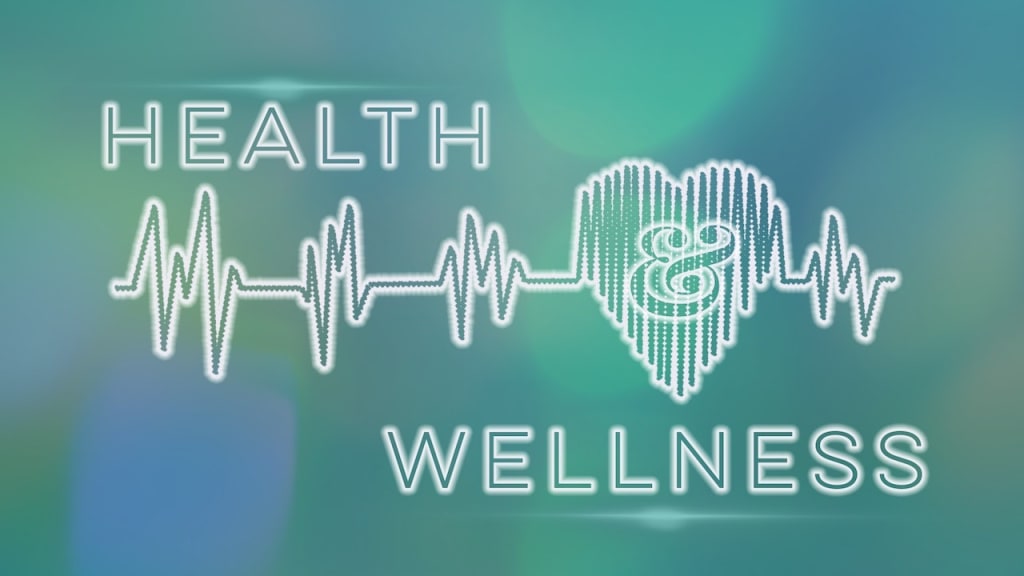Health and Wellness
The Key to a Happy Life

Health and wellness are two of the most important aspects of our lives, and taking care of our physical and mental well-being should be a top priority for everyone. Whether it's through regular exercise, a balanced diet, stress management techniques, or seeking out medical care when needed, taking care of ourselves is essential for living a happy and fulfilling life.

Exercise: Regular physical activity is essential for maintaining good health and reducing the risk of chronic diseases such as heart disease, stroke, and diabetes. Whether it's a daily walk, a yoga class, or a vigorous workout at the gym, incorporating exercise into your routine can help improve your overall health and boost your mood.
The Importance of Exercise for a Healthy Life
Exercise is one of the most important things we can do for our health. Regular physical activity has numerous benefits, including reducing the risk of chronic diseases, improving mental health, and increasing energy levels. Whether you're a seasoned athlete or just starting out, incorporating exercise into your daily routine is a great way to improve your overall well-being.
Physical Benefits: Exercise is one of the most effective ways to reduce the risk of chronic diseases such as heart disease, stroke, and diabetes. By strengthening the heart and improving circulation, regular exercise can also lower blood pressure, reduce the risk of certain cancers, and improve bone density. Additionally, exercise can help you maintain a healthy weight, which can reduce your risk of numerous health problems.
Mental Benefits: Exercise is also great for your mental health. Regular physical activity can help reduce symptoms of depression and anxiety, improve mood, and boost self-esteem. Exercise also releases endorphins, which are feel-good hormones that can help improve your overall sense of well-being.
Energy Boost: Regular exercise can also increase your energy levels. By improving circulation, exercise can deliver oxygen and nutrients to your cells, giving you a natural energy boost. Exercise can also help you sleep better, which can lead to increased energy during the day.
Getting Started: The good news is that it's never too late to start exercising! Whether you're looking to start a new fitness routine or just want to increase your physical activity levels, there are many options available. Some people prefer structured workouts, like going to the gym or participating in group fitness classes, while others prefer more casual activities, like going for a walk or playing a sport. The most important thing is to find something you enjoy and that you can stick to.

Diet: Eating a balanced diet that is rich in nutrients, vitamins, and minerals is key to maintaining good health. This means focusing on whole, unprocessed foods like fruits, vegetables, whole grains, and lean protein, and limiting your intake of sugary, fatty, and processed foods. Drinking plenty of water and staying hydrated is also important for overall health and wellness.
The Importance of a Balanced Diet for Good Health
Eating a balanced diet is one of the most important things you can do for your health. A healthy diet provides your body with the nutrients it needs to function properly, reduce the risk of chronic diseases, and maintain a healthy weight. Whether you're a seasoned cook or just starting out, there are many ways to incorporate a balanced diet into your daily routine.
Nutrition Basics: A balanced diet should include a variety of whole, unprocessed foods, including fruits and vegetables, whole grains, lean protein, and healthy fats. It's also important to limit your intake of sugary, fatty, and processed foods, which can contribute to chronic health problems and weight gain. Staying hydrated by drinking plenty of water is also essential for good health.
Reducing the Risk of Chronic Diseases: By eating a balanced diet, you can reduce your risk of chronic diseases such as heart disease, stroke, and type 2 diabetes. This is because a healthy diet is often lower in saturated and trans fats, which are known to increase the risk of these conditions. Eating a diet rich in nutrients, vitamins, and minerals can also help improve your overall health and reduce your risk of chronic diseases.
Maintaining a Healthy Weight: Eating a balanced diet can also help you maintain a healthy weight. By focusing on whole, unprocessed foods, you can avoid overeating and reduce your risk of weight gain. Regular physical activity, in combination with a balanced diet, can be an effective way to manage your weight and reduce the risk of obesity.
Getting Started: Incorporating a balanced diet into your daily routine can seem overwhelming at first, but there are many simple changes you can make to get started. Try adding more fruits and vegetables to your meals, switching to whole grain products, and limiting your intake of sugary drinks. You can also try new recipes, experiment with healthy cooking methods, and learn about the latest nutrition trends to keep your diet interesting and delicious.

Stress Management: Chronic stress can take a toll on both your physical and mental health, so it's important to find ways to manage stress in your life. This can include activities like meditation, deep breathing exercises, or simply taking time to relax and unwind. Engaging in hobbies or spending time with friends and family can also help reduce stress levels.
Stress management is a process of recognizing, understanding, and coping with stress in a healthy manner. Here are some key steps to managing stress:
- Identify the source of stress: Understanding what triggers stress can help to develop effective coping strategies.
- Exercise regularly: Exercise is a great way to reduce stress and improve overall mental health.
- Practice mindfulness: Mindfulness and meditation are effective methods of reducing stress levels and improving mental well-being.
- Develop healthy coping mechanisms: Engage in activities that bring joy and relaxation, such as reading, listening to music, or spending time with loved ones.
- Get enough sleep: Quality sleep is essential for both physical and mental health, and can help reduce stress levels.
- Reach out for support: Talking to friends, family, or a mental health professional can provide the support and guidance needed to manage stress.
- Practice good self-care: Maintaining a healthy diet, engaging in regular physical activity, and taking breaks when needed are all important components of stress management.
Remember, stress is a normal part of life, and managing stress effectively can lead to a more fulfilling and balanced life.

Medical Care: Regular medical check-ups and seeking out care when needed is crucial for maintaining good health. This can include preventative care, like getting regular check-ups and screenings, as well as seeking treatment for any medical conditions that arise. Taking care of your physical and mental health is a lifelong journey, and it's important to stay proactive and seek out care when needed.
Medical care refers to the diagnosis, treatment, and prevention of diseases and injuries by medical professionals. The primary aim of medical care is to restore and maintain good health, prevent and treat illnesses and injuries, and improve quality of life.
- Types of medical care: There are various types of medical care including primary care, specialized care, preventive care, emergency care, and rehabilitation care.
- Primary care: This is the first point of contact for individuals seeking medical treatment, and typically involves general practitioners or family doctors.
- Specialized care: This type of care is provided by specialists in a specific field of medicine, such as cardiology, oncology, or orthopedics.
- Preventive care: Preventive care aims to prevent the onset of diseases and injuries through regular check-ups, screenings, and immunizations.
- Emergency care: Emergency care involves the immediate treatment of serious illnesses or injuries in a hospital emergency department or other medical facility.
- Rehabilitation care: This type of care focuses on helping individuals recover from illnesses or injuries and regain their abilities and independence.
- Importance of medical care: Regular access to medical care helps individuals maintain good health, prevent and treat illnesses, and improve their quality of life.
Medical care is an essential aspect of maintaining good health, and individuals should make an effort to understand their options and access the care that is best suited to their needs.
In conclusion, health and wellness are vital components of a happy and fulfilling life. By incorporating exercise, a balanced diet, stress management techniques, and seeking out medical care when needed, we can all work towards improving our overall health and well-being.






Comments (1)
It's very useful article to know about the health and wellness. Your way of writing is excellent. Keep going